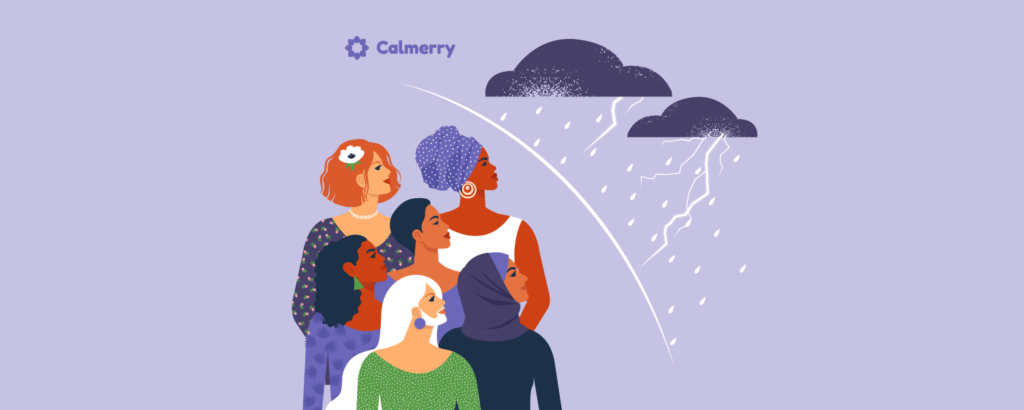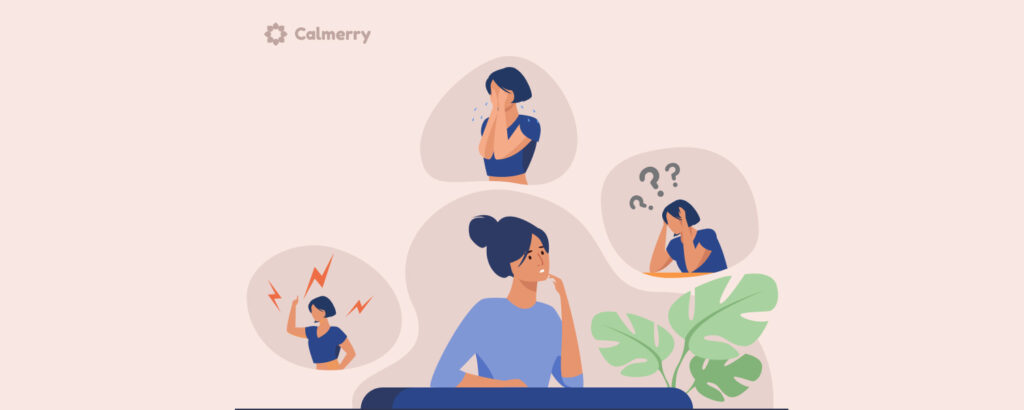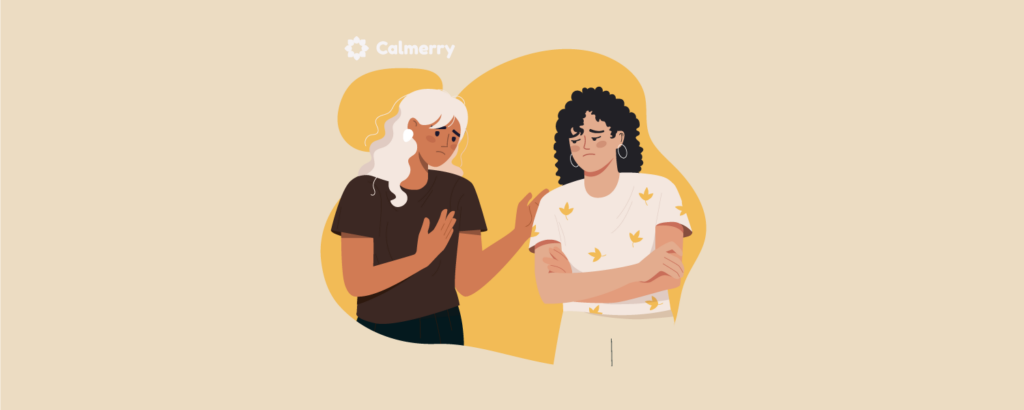How Gender Inequality Affects Women’s Mental Health

Table of Contents
Gender discrimination has been around for centuries. It continues to persist despite the progress made by social movements like #MeToo, #TimesUp, #SayHerName, and HeForShe. These campaigns shed light on the broad spectrum of gender-based violence, discrimination, and inequality women face globally.
They show that today women are still fighting for equality and equity, their rights, needs, fairness, and the freedom to be a woman without any imposed norms or restrictions.
This article explores the realities of gender inequality, its adverse effects on women’s mental health, and offers actionable insights for healing and emotional recovery. Additionally, we will delve into the concept of intersectionality, recognizing the unique challenges women from diverse backgrounds face.
In this article, the terms “women” and “men” are used to encompass all individuals who identify themselves with these gender identities. We recognize that gender is a complex and diverse spectrum, and we aim to be inclusive of all gender identities and expressions.
What is gender inequality?
Gender inequality is unequal treatment and opportunities that individuals experience based on their gender. This pervasive social issue has historical roots and continues to affect societies worldwide.
While both men and women experience gender inequality, women are often disproportionately impacted.
The uncomfortable truth about gender inequality

Many people believe that women have already gained all the rights they need and that feminism as a movement is unnecessary or even harmful. We have Title IX and state laws against gender discrimination, they say.
The truth is that in no country have women achieved equality. Discrimination is still prevalent in all countries worldwide, including the US.
Here are some uncomfortable and striking facts about gender inequality:
- The World Economic Forum projects that it will take 158 years for North America to reach gender equality and 170 years for the whole world.
- In the US, a woman typically earns 82 cents for every dollar earned by a man for the same work. Black women typically make only 67 cents for every dollar paid to non-Hispanic white men.
- Women make up only 28% of Congress.
- Men are promoted at 30% higher rates than women during the early career stages.
- For every 100 men promoted to manager, only 87 women are promoted, and only 82 women of color are promoted.
Gender inequality examples
Social movements have highlighted gender inequality, stereotyping, sexism, prejudice, and violence, showing that discrimination manifests in many forms — from insidious and subtle to blatant and violent. They can happen to anyone in any life sphere: workplace, sports, relationships, family, education, healthcare, religion, media, or politics.
Moreover, subtle forms are so ingrained in society that they may be hard to spot.
Here are some examples of gender-based stereotypes, unfair judgments, and expectations you might face in everyday life as a woman:
- “Girls are good at art, but boys are better at math.”
- “Women are poor drivers.”
- “You’re crying like a girl.”
- “Girls are too emotional to handle leadership roles.”
- “You should smile more, it makes you look prettier.”
- “As a woman, you must prioritize your appearance.”
- “Men are naturally better at problem-solving and decision-making.”
- “You’re a girl! You shouldn’t pursue careers in engineering or technology.”
- “You can’t be both a successful career woman and a good mother.”
- “Women are too sensitive to handle constructive criticism.”
- “Single or childless women are incomplete or unfulfilled.”
- “Dinosaur toys are for boys. Girls should play with dolls.”
- “As a girl, you must behave well and be docile.”
- “Oh, shave your legs, girls have to be smooth.”
- “Are you asexual? You just need to stop hating men!”
Although some people don’t experience gender-based inequality, it does exist.
1. Workplace disparities
In the workplace, gender inequality often manifests through disparities in pay and representation. Women may face lower wages than their male counterparts for similar roles, leading to the gender pay gap.
Additionally, women may be underrepresented in leadership positions, facing barriers to career advancement and opportunities for professional growth.
2. Limited educational opportunities
Girls and young women may encounter limited access to quality education, particularly in certain regions or communities. Stereotypes and biases may steer girls away from pursuing subjects like science, technology, engineering, and mathematics (STEM), perpetuating the gender gap in these fields.
3. Gender-based violence
One of the most distressing aspects of gender inequality is the prevalence of gender-based violence. Women and girls are disproportionately affected by various forms of violence, including domestic violence, sexual assault, and human trafficking.
These acts of violence can have severe and long-lasting impacts on survivors’ mental and physical well-being.
4. Unpaid care work
In many societies, women are often burdened with most unpaid care work, including caregiving for children, the elderly, and household chores. This unequal distribution of care responsibilities can limit their opportunities for economic participation, personal development, and leisure time.
5. Media representation and stereotyping
Gender inequality is perpetuated through media representation, where women may be portrayed in stereotypical roles and subjected to objectification. Media depictions often reinforce harmful stereotypes, influencing societal perceptions of women’s capabilities, worth, and societal roles.
These portrayals can negatively impact women’s self-esteem and aspirations.
6. Political underrepresentation
Women are often underrepresented in decision-making positions and elected offices. Barriers such as stereotypes, cultural norms, and lack of support may deter them from entering politics and hinder their ability to actively participate in shaping policies that impact their lives.
Get immediate help if you need it
Support hotlines list:
- Suicide Prevention — Hotline: 800-273-8255
- Crisis Text Line — Text: 741741
- Sexual Assault — Hotline: 800-656-4673
- Domestic Violence — Hotline: 800-799-7233
How does gender inequality affect women’s mental health?
Gender inequality is strongly associated with poor mental health. It plays a key role in mental well-being decline and the development of mental illnesses in women and gender-diverse people. For example, depression is twice as prevalent among women as men.
Let’s explore how and why gender inequality fuels mental health problems in women, both short- and long-term.
It triggers the development of mental health conditions or worsens the symptoms
Gender inequality is a strong driver of anxiety and depression. Unequal access to education and healthcare, sexist remarks, restrictions of freedom and mobility, power inequality, name-calling, sexual harassment, emotional abuse, and domestic violence — any form of discrimination and gender-based violence is a source of tremendous mental and emotional distress.
Discrimination causes intense emotions and feelings of fear, shame, panic, frustration, sadness, and anger. It also deprives people of feelings of safety and control. Thus many women keep avoiding certain locations or situations where they feel vulnerable “because of their gender.”
A 2020 research revealed that women who experienced gender discrimination in the past year exhibited depressive symptoms and were at increased risk for developing a condition. This is especially true for those who were emotionally, physically, or sexually abused as children or adults. There’s also evidence that pregnancy discrimination increases levels of postpartum depressive symptoms for mothers.
Additionally, gender inequality is one of the main risk factors for developing eating disorders and substance use disorders.
It causes distorted self-concept and sense of sexuality

Rigid gender norms and roles and common stereotypes of femininity affect people’s sense of self from a young age. Stopping women from working or driving, managing their money, and limiting their lives to “womanish” roles of good wives and happy mothers harm their self-concept.
As a result, people feel that they don’t have control over their lives and bodies and have no right to deviate from the established norms. In this case, they have trouble living true to themselves and connecting with their needs and desires.
Discrimination can shut you out when you’re trying to answer the “Who am I?” question.
Also, the devaluation of femininity and gender diversity provides space for harmful behaviors that adversely impact women’s self-esteem and self-image:
- Mansplaining (explaining something to someone in a condescending tone, even when they have more expertise on the problem)
- Body shaming and setting appearance standards or restrictions (“You have to work out and be fit,” “Put off this short dress — you’re flaunting your beauty,” “Real girls don’t wear short hair.”)
- Overlooking human emotions and feelings or dividing them into feminine and masculine
- Exposure to harmful messages, hostile remarks, or insults in the media and real life
- Sexist jokes and assumptions of intellectual and physical inferiority of women
- A sexualized depiction of women and objectification (when a person is treated as an object with an external value, regardless of their personality and abilities)
- Intentionally referring a person to a gender they don’t identify with or deadnaming
This ultimately affects people’s body image, self-esteem, and self-worth. And this doesn’t allow them to reflect their real power, personality, potential, and diversity.
It leads to self-blame and toxic shame
Women tend to blame themselves for the discrimination and problems they experience. Self-blame opens doors to toxic (internalized) shame, guilt, and self-disgust. It can make you feel “small,” worthless, and hopeless.
One of the reasons for this is the lack of awareness that:
- Any discrimination isn’t okay
- It’s a matter of a larger societal problem rather than an isolated incident because of you. In other words, unfortunately, it happens everywhere, and you’re not to blame. It takes a lot of courage and strength to overpower the focus on self-blame, heal, and start seeing mistreatment a bit wider.
Also, victim-blaming creates a climate of intimidation. It plays a crucial role in preventing victims from speaking up and coping with what they’re going through.
It causes burnout

Today, women shoulder more of the caregiving responsibilities and spend over twice as much time on housework as men because of gender roles. This is also the case for couples with both partners working full-time.
Moreover, even if a woman is highly-paid, they don’t do less housework. This can be explained by the sense of guilt many women experience when they don’t “fully follow” the traditional role functions. It results in jumping over their heads, juggling tasks, and overburdening by workload.
Besides, trying to fit in the expectations of a superwoman leaves less time for the rest. Even when both genders have almost equal amounts of free time, men have more uninterrupted rest than women. In addition to the statistics, working mothers get less sleep compared to working male partners.
All these factors affect healthy work-life balance and accumulate overwhelming stress that eventually results in burnout.
It demotivates and affects career choices
According to a survey, 42% of US working women faced workplace gender discrimination. Usually, they’re treated as less competent than male coworkers and suffer from a gender pay gap while performing the same job. Apart from it, many report sexual harassment, sexist remarks, ostracism, bullying, devaluation of their skills or capabilities, and unfair job rejection.
Many workers can’t access favorable conditions to juggle parenting or caregiving responsibilities with their professional activities. They often feel like they have to choose between their career and personal life. And it’s one of the reasons why women are less likely to pursue higher-paying careers. They’re especially underrepresented in high-paying fields such as science, business, and law.
Moreover, gender discrimination in the workplace can be paired with discrimination based on race, physical abilities, sexuality, ethnicity, age, religion, or other factors. So, a woman of color may experience inequity differently from a white female co-worker.
As a result, discrimination in the workplace can lead to:
- A reduced sense of belonging
- Loss of motivation
- Giving up a career for mental health reasons
- Intense stress
- Self-doubt and low confidence
- Unhealthy self-esteem
- Reduced job satisfaction
- Feelings of loneliness and alienation
- Decreased productivity
- Overwork
- Withdrawal and isolation from coworkers
- Disappointment in corporate culture
- Occurrence of imposter syndrome

It results in trauma and sexuality problems
Violence against women, as one of the extreme forms of inequality, is a major public health problem and a violation of human rights. According to the WHO, about 1 in 3 women worldwide have experienced physical or sexual violence in their lifetime. This rate is higher among trans people.
Survivors of violence can experience severe physical and psychological effects for a long time. Such traumatic experiences have a damaging impact on people’s sex life and sexuality, on how they build relationships and lead their lives.
Women are more likely to experience childhood neglect, violent acts against sexuality and sexual integrity, such as:
- Female genital mutilation
- Forced prostitution
- Sex trafficking
- Obligatory inspection for virginity
- Intimate partner violence
- Child marriage
- and other violent, discrimination-based actions that are especially common among the cultures of honor and shame.
Gender discrimination, like any type of discrimination, is also a traumatic experience. And direct or indirect exposure to it can trigger trauma or cause trauma spectrum disorders. Exposure to unfair treatment can also worsen the symptoms of PTSD. According to the research, the discriminatory stress that woman veterans with PTSD face significantly increases the severity of their condition.
It increases the risk of suicide
Gender discrimination can kill. The WHO found that suicide was the leading cause of death for women aged 15 to 19. Most often, it resulted from anxiety and depression developed after facing gender-based discrimination and violence.
If you or someone in your family or community may be at risk for suicide, contact your healthcare provider, local mental health authority, or the National Suicide Prevention Lifeline 1-800-273-TALK (8255) (En Español: 1-888-628-9454; Deaf and Hard of Hearing: 1-800-799-4889).
What can I do?
For sure, forging equity and equality, accelerating gender parity, and providing fair opportunities for anyone to live fulfilling lives greatly depends on policy-makers and law enforcement. Additionally, some gender mainstreaming movements drive important social changes and positively impact women’s lives worldwide.
But if you or someone you know fall victim to gender-based discrimination, there are some actions you can do to start moving toward emotional healing:
- Keep in mind that it’s not your fault, and you don’t deserve it
- Prioritize your safety
- Take time away from traumatic experiences and employ self-care practices
- Don’t be afraid to take legal action and get professional support from law authorities. Remember that gender discrimination is illegal
- Share household chores and childcare equally
- Watch for signs of abuse and violence
- Avoid people who exhibit or support discrimination
- Practice compassion and patience with yourself as you heal
- Reach out to communities of survivors to get emotional and/or financial support, speak up if you can, and move forward together
- Improve assertiveness skills to be able to state and defend your right to equal treatment
- Partake in anti-discrimination campaigns to raise awareness against bias and violence
- Get empowered by inspiring and influential figures who combat gender bias
- Receive support from your friends, family members, or community
Use these resources to get informed and receive help
- ACLU (American Civil Liberties Union)
- Equal Rights Advocates
- US Equal Employment Opportunity Commission (EEOC)
Get empowered with the help of a therapist
Every woman responds and copes with gender discrimination differently. But there are still many barriers rooted in stigma, fear, and bias preventing them from getting the quality care they need. The safety and privacy of online therapy help break these barriers.
Calmerry is here to empower women and provide gender-sensitive care. Therapy is for everyone who needs:
- Help to deal with the negative mental health effects of gender inequality
- A safe, unbiased, and compassionate space to talk about their experiences
- Feel supported by those who understand what they’re going through
- Gain coping skills to resist discrimination and improve mental health
- Work with someone who knows that gender plays an important role in therapy outcomes
- Strengthen resilience during times of uncertainty
- Vent their frustrations
- Learn more about gender disparity
- Improve self-confidence and increase self-worth
- Recover self-image and self-identity
- Rediscover a personal female power of today
You deserve to live free from stereotypes, judgments, biases, unfairness, and violence. And you deserve the best living conditions that allow you to thrive. So let’s make a change in your life and mental health together!
-
Learn morePersonalized online therapyChoose video, messaging, or both to fit your schedule and comfort. Get matched with your therapist within 1 hour.
-
Learn moreOne 60-minute live video sessionSee how online therapy works and get quick support with a single therapy session. No commitments.


